Downloading the Future
By matski53 20 Comments
Downloading the Future
@matski53
For more articles like this visit my blog - http://gamewhelk.com/
Once upon a time the acquisition of a new videogame was a relatively standardised affair for the gamer. You scurried along to your local gaming retailer with a giddy sense of anticipation. Upon arrival you zoned in on your platform of choice and began scanning the displays like a terminator; your eyes trained with all the superior peripheral vision and focus that comes with countless hours of FPS gameplay. Syphoning through the shovelware and crappy second rate sequels you finally fixate upon it. That sacred copy of Custer’s Revenge/Zelda:Wand of Gamelon/Pippa Funnels ranch rescue. Whatever floats your boat. After a purchase at the till you galloped on home for a nice warm slice of interactive nerd pie.

Nice and simple.
Nowadays the affair is a much more convoluted process as a variety of newer distribution options present themselves through the rise of the internet. Services such as Xbox live, Playstation Network, Steam, Origin and Onlive remove the middlemen of retailers and disks in favour of downloading content through the internet straight to your machine.
So where does the future of videogame distribution lie? And which, if any, of these services will ultimately prevail as the dominant method by which we receive our beloved bundles of pixels and polygons?
The first form of online console service came as early as the Atari 2600’s Gameline. A service utilising modem transmission technology, allowing users to download full games through their telephone line connections to an atari cartridge. Although pioneering in its vision gameline ultimately became another forgotten casualty of the 1983 videogame crash.
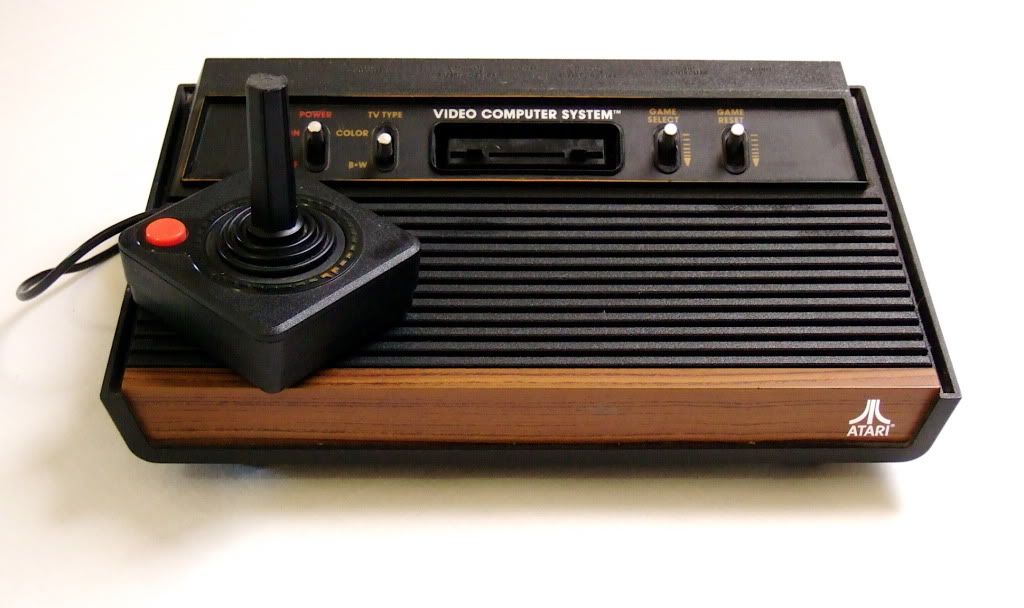
More recently games console manufacturers have developed persistent online services. First initiated by Sega's Dreamcast, although most widely popularised through Microsoft’s Xbox live, Sony’s Playstation Network (PSN) and Nintendo’s virtual console/eShops in the current generation of consoles.
Xbox live was first made available in 2002 through the original Xbox and currently has around 35 million registered users through Xbox 360 Playstation Network has now accumulated 77 million registered accounts since its launch in 2006 through both the PS3 and PSP.
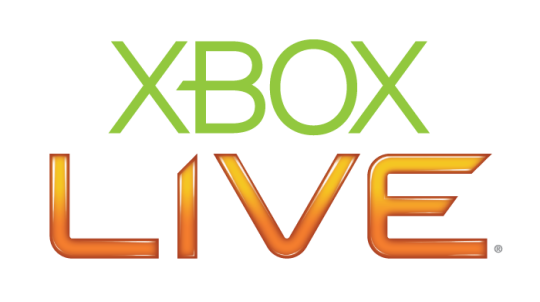
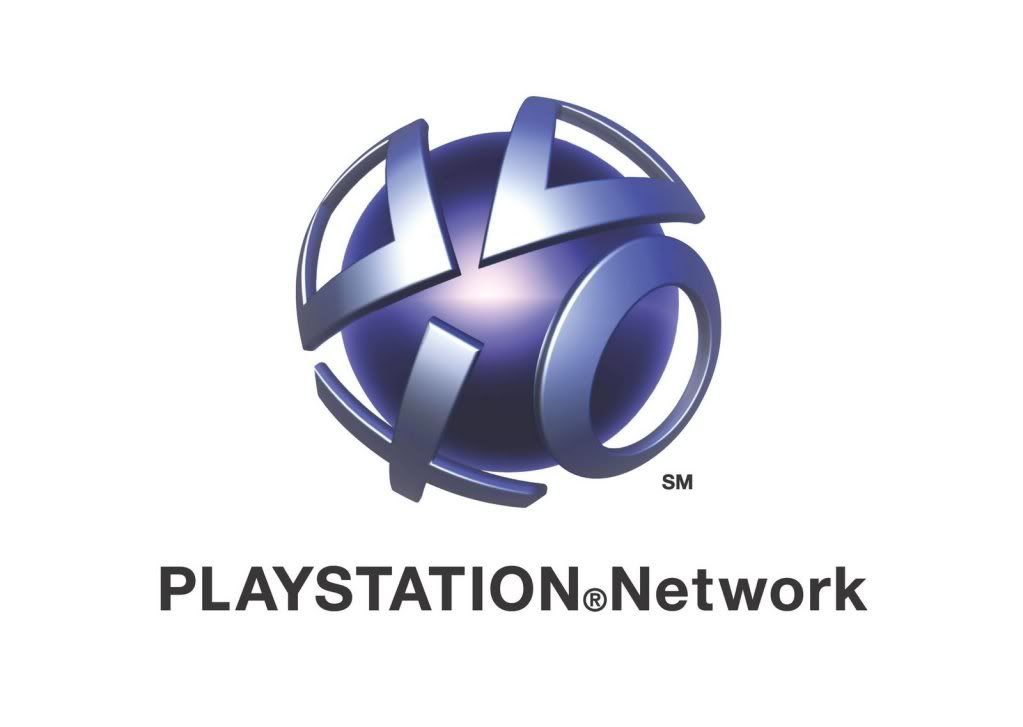

Each service offers various forms of downloadable games from smaller arcade titles, to classics from previous console generations, as well as platforms for online multiplayer gameplay. Live and PSN now offer an ability to download full current generation titles, made available some time post retail release. Recently breaking with this mould Mass Effect 2 became the first title made available through PSN day in date alongside its retail release on PS3. In some ways only just matching a service that was available way back on the Atari 2600.
Whilst current online console services are only just now taking baby steps towards providing day one full downloadable titles, another form of online service has been the proving ground of the downloadable game sales business.
Valve’s Steam, EA’s Origin, Gamestop’s Impulse, Direct2Drive and Gamersgate are all examples of digital distribution platforms. They offer full downloadable titles and demos alongside a platform for multiplayer gameplay and social interaction, much like online console services.
Released in 2002 Steam has 1,300 available titles and the largest userbase of any digital distribution platform with 35 million active users. Direct2Drive was launched in 2004, acquired by Gamefly in May 2011, and now offers over 3,000 titles. EA’s Origin platform is a revision of the EA store and EA download manager. Opened in June 2011 it has already accumulated 3.9 million registered users as of September 2011 . Impulse was created by Stardock in June 2008 and was recently purchased by Gamestop in March 2011 seeing the retailer diversify into the online digital download market.

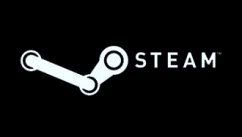

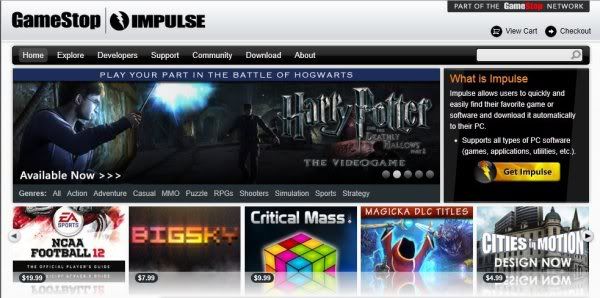

Whilst these services remove the need for cyclical console upgrades they still rely upon a computer or hardware of some form with sufficient technical specifications for the latest games. Only the need to purchase a hardcopy of a title is removed through digital distribution platforms.
Pushing the most technological boundaries currently available are the cloud based streaming services, the most prevalent of which is Onlive. Launched in June 2010 Onlive provides a cloud based service through which game content is run on a company server distant from the players location. Controller inputs are streamed to the server where all computation is carried out and the resulting visual output is streamed back through the internet and displayed on the screen.
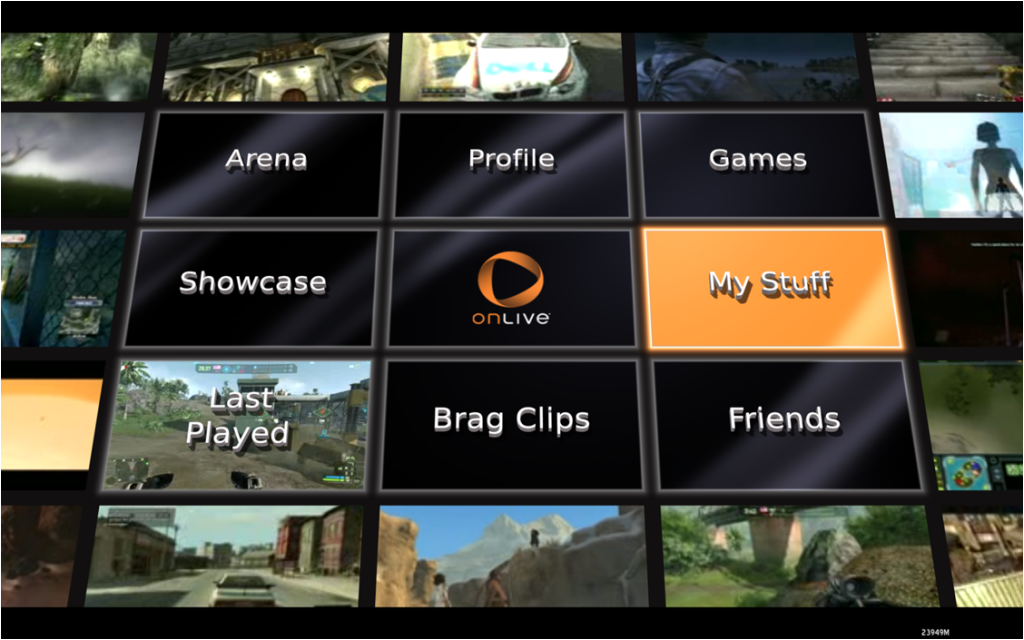
Whilst Onlive is currently the most publicised streaming service several competitors exist utilising very similar technology such as David Perry's Gaika and the 3D application orientated OTOY.
Highly ambitious, these services seem to present the next logical evolution of content distribution: Removing the need for costly hardware upgrades, disk based media and even data downloads.
With cloud based streaming services the potential arises for the most graphically complex and computationally taxing of games to be streamed to any modest hardware, including low spec laptops, tablets and even smartphones. The implication being that in less than 2 decades we have advanced from the ability to play monochrome snake on our phones to Crysis in all its complex graphical splendour .
Currently though access to these service is limited by proximity to a company server, and the quality of your experience is directly proportional to the quality of your internet connection. These are problems that will be solved with time as increased broadband speeds and true 4G internet are adopted and become a standard.
The quantity and quality of content available on streaming services is as of yet severely limited in comparison to online console services and digital distribution platforms. Alongside this neither cloud streaming nor digital distribution platforms have access to the console exclusive titles that provide some of the largest incentives for gamers to purchase consoles. There is as of yet no way to download the latest adventures of Mario, Master chief or Kratos upon release. Still though these digital platforms do offer third party titles day one of release and potentially at a reduced price thanks to the removal of retailer costs.
Large retailers like Gamestop continue to incentivise custom through their trade in services. And many people are simply uncomfortable not own a hard copy of the game and only a downloaded version or a pass with to access the game. We are after all creatures of habit and many of us simply are not comfortable with the lack of tangibility from internet based distribution, especially in light of recent hacking issues with PSN and other services.
The most likely future scenario seems to involve a marketplace splintered between these various distribution methods for a period, whilst faster broadband speeds and true 4G become a standard. Therefore facilitating a transition away from the current widely used retail purchase and digital download methods and a move toward cloud based streaming and the logical benefits it offers. How long this transition will take is unclear, dependant upon streaming uptake rates which themselves are dependant upon content and service quality. All that is certain is that videogames are a technology driven medium and content distribution will continue to change alongside technological advancement.
For more articles like this visit my blog - http://gamewhelk.com/
References:
(1)http://majornelson.com/2011/06/03/a-few-stats-before-we-head-into-e3/
(2)http://blog.eu.playstation.com/2011/04/28/playstation-network-and-qriocity-outage-faq/
(3)http://gamingbolt.com/35-million-active-gamers-on-steam-valve-hints-at-an-improved-source-engine
(4)http://www.gamespot.com/news/6333640/ea-origin-installs-hit-39-million
